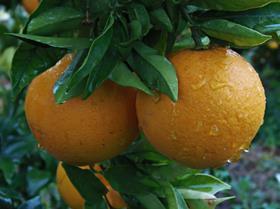
The European Commission says there is “no data” to prove that the crisis in Valencia’s citrus industry is linked to imports from South Africa.
In its official response to a complaint filed by Valencian producers that the EU’s free trade agreement with South Africa was causing serious damage the sector, Brussels suggested that the sector’s lack of competitiveness had more to do with internal structural problems and other factors.
The Commission stressed that it maintained contact with several producers in the region and was fully aware of the extent of the crisis, but insisted “the data does not show an increase in imports [from South Africa] but rather a downwards trend”.
Spanish agricultural union Ava-Asaja accuses South Africa of flooding the European market with citrus in recent years. It claims imports increased by 15 per cent this season, with the volume expected to keep on growing as non-EU producers increase their production.
However, official EU data shows that most of the increase this has been during Spain’s off-season, and that there has only been a 5 per cent growth in imports this year compared to the previous year.
Furthermore, it notes that between 16 October and 30 November, the period in which tariff concessions for South African imports were extended under the 2016 Economic Partnership Agreement, imports were 49 per cent lower in 2018 than in the previous year, and represented just 2 per cent of the overall import volume.
This suggests that the impact on Spanish sector would only be seen in the earliest varieties, and not throughout the entire campaign.
Brussels said other factors were behind the price falls seen in Valencian citrus, such as the adverse impact of the climate on fruit size and quality as well as on demand, poor organisation of the region’s grower base, and problems on the French border.



